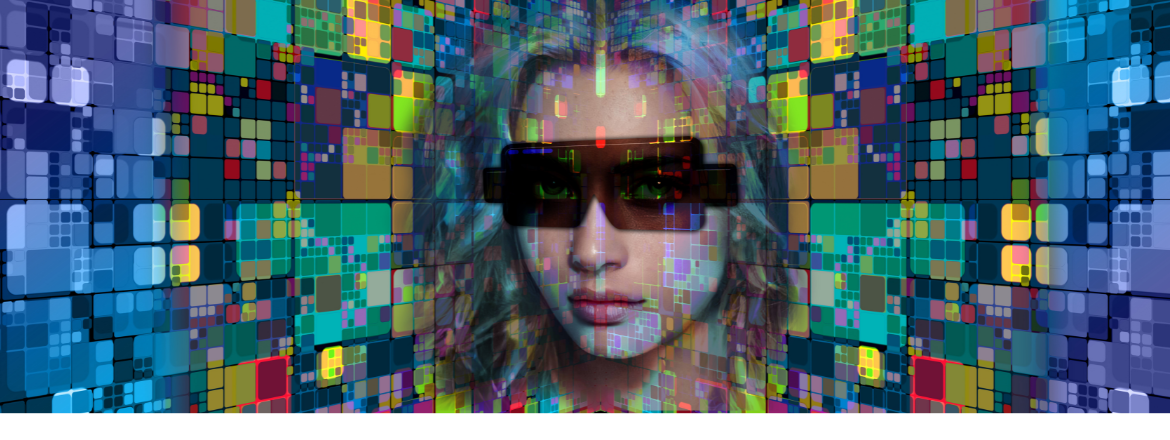How the Technological Era Has Changed the Global Intellectual Property Ecosystem

Table of Contents
Intellectual property is at the heart of technical innovation, economic progress, and global market regulations. Ideas are habitually thought of as the ‘coinage’ of the twenty-first century, and yet, their real value is ascertained by their potential to be preserved.
The effect of global digitalization on intellectual property in relation to creative development looks at whether global intellectual property laws have changed to keep up with new technologies.
The emergence of innovations that were once thought of as fictional and almost unattainable, such as artificial intelligence, machine-learning frameworks, and blockchain encryption, has taken the digital commercial realm by storm. And this has thus revolutionized integrated market structures, developing unique obstacles and prospects for both intellectual property owners and regulatory authorities.
In Light of the Next Technological Revolution, Why is Intellectual Property Vital?
On a global socio-economic scale, intellectual property know-how is crucial. An orientation toward IP will serve to distinguish between business risk and financial gain in a societal structure where technology is constantly upending economic norms.
Expert Insight: Expert Insight: More light is shed upon unpopular types of intellectual property, like trade secrets and non-disclosure agreements. This is evidenced by the increase in litigation over trade secrets, the growing economic value of confidential information, and the heightened focus on protecting trade secrets and confidential information from both companies and policymakers.
Recent improvements in digital technology are opening new ways to innovate and changing traditional value chains in many "verticals," or industries. These "verticals" include mass production, logistics, retail, and entertainment, among others. The revolution of existing mainstream processes and the emergence of radically novel goods and services are anticipated to have a substantial bearing on these industries.
Expert Insight: Futuristic notions such as the Metaverse, with its plethora of sociological and economic ties, are slated to open and create multiple, untrodden opportunities for cutting-edge applications, primarily across the digital communication sectors. Perhaps resulting in the dire need for IP protection laws that are yet to be created.
Basic mechanisms of patents, trademarks, copyrights, and designs are now becoming increasingly noteworthy.
The Emergence of New Forms of Intellectual Property
The emergence of new types of IP has been one of technology's most profound consequences for the global intellectual property ecosystem. Patents, copyrights, and trademarks are examples of traditional types of IP that have been around for many years. Trade secrets, software patents, and domain names are examples of new IP types that have emerged, because of technological advancements.
Expert Insight: Domain names are now a valuable type of intellectual property due to digital technology and the diversification of online services. Several domain names have been acquired for whopping amounts of money. Parallel to just how software has become a mainstay throughout the online community, thus resulting in a worldwide surge of software patent applications.
Intellectual Property Driven by Technology: A Driving Factor in Mergers and Acquisitions
Businesses in virtually every industry are contending over whatever technological edge they can get their hands on, as they endeavor to reshape and adapt to the digital age.
Whether an innovation is created in-house, secured through mergers and acquisitions, or licensed through external parties, the IP rights granted to such an innovation are pivotal to its business's operating model. A clear-cut idea of what types of IP protection would eventually apply to said innovation can directly affect its capacity to successfully establish its presence in a marketplace once it is ready to be introduced for public use.
- Research indicates that among the top reasons cited by multinational corporations when exploring acquisitions were "acquiring innovative technology" and "acquiring intellectual property," thus, underscoring the direct correlation between technology and intellectual property. They were most interested in acquiring patents, trade secrets, know-how, and trademarks.
- Technology transfer and commercialization of innovation, which facilitate the dissemination of findings from R&D to the wider economy, center on a comparison of key modalities of innovation. These modalities currently appear to dominate the landscape of the digital economy.
- It is imperative to have a firm grasp on applicable intellectual property rights, as early as the ideation phase of innovation.
Intellectual Property and Digital Data in the Gig and Sharing Economy
IP protection now faces additional difficulties as a result of how simple it is for people to produce and exchange information online.
- Due to the internet's borderless reach, it can be challenging to uphold intellectual property laws across worldwide jurisdictions, simultaneously. As a result, a more unified and international approach to protecting intellectual property has been called for.
- The emergence of new business models in the tech era has challenged traditional intellectual property protection systems and led to new legal questions around ownership, control, and collaboration.
- As these models continue to evolve, it will be important for intellectual property laws and regulations to adapt to these changes, in order to provide appropriate protection for intellectual property owners while still promoting innovation and creativity.
Expert Insight: As a result, there has been a growing need for standardized IP protection, with the World Intellectual Property Organization (WIPO) at the forefront of drafting new international treaties and agreements. For example, The WIPO Copyright Treaty guarantees copyright protection for works published over the internet and is an important step toward building a more standard approach to intellectual property.
The sharing economy, exemplified by platforms such as Uber and AirBnB, enables individuals to monetize their assets, such as their cars or homes, by offering them as a service.
The gig economy, on the other hand, has brought complex challenges about intellectual property and digital data, including ownership, licensing, and compensation concerns for gig workers' original output or client-collected data. As the ‘freelance’ economy continues to expand, it will be crucial to address these concerns and create new frameworks for protecting intellectual property and data.
In Retrospect: The case of independent photographer Daniel Morel exhibits the intellectual property difficulties that might arise in the gig economy. Morel published images of the Haiti earthquake to social media, which were then reposted by other users, including AFP and Getty Images, without his consent. Morel sued both corporations for copyright infringement, and a court finally sided with him, awarding him $1.2 million in damages. This case illustrates the difficulties around ownership and compensation for gig workers' unique digital works, as well as the need to preserve intellectual property rights.
Existing IP protection mechanisms are put to the test by the ‘Gig and Sharing Economy’, as it evolves into a commercial model, that is here to stay. Given that it gives IP owners additional ways to profit from their physical assets. These instances challenge the essence of the intangible nature of the intellectual property.
The Technological Impact on IP Licensing and Commercialization
The licensing and commercialization of intellectual property have been greatly influenced by the next technological revolution. Digital platforms and marketplaces have made it easier for businesses and individuals to license and commercialize their intellectual property by instantly enabling them to reach global audiences and markets, in real time.
Expert Insight: Due to the ‘App Economy’, developers have endless platforms and mediums to monetize their proprietary software through licensing deals and standardized app stores. In a similar vein, platforms like Amazon and eBay have facilitated the sale of products by providing sellers with endless avenues and tools. They have also enabled them to directly interact with consumers via the underrated power of user reviews.
- The advent of open-source software has been one of the biggest technological advancements. Developers may now work collaboratively while being on different ends of the world. Innovative software design that introduces cutting-edge apps and services has been afforded by this development in the realm of collaborative innovation.
- Yet, it has also generated new obstacles for the licensing and marketing of intellectual property, as organizations must now find new ways to combine the need to safeguard their IP with doubling down on data privacy as developers reap the advantages of sharing and creating, virtually.
Expert Insight: In terms of data privacy, the EU has taken the lead in fostering a responsible transition to the digital age by establishing norms in a number of critical areas, such as cybersecurity through the General Data Protection Regulation (GDPR) and digital platform regulation with the Digital Markets Act.


Implications on current Intellectual Property Legislation
The manner in which intellectual property is developed and enforced in the global economy is undergoing a substantial transformation.
It has ushered in a new era of both possibilities and problems for those who hold intellectual property, and it has highlighted the need for a more unified and efficient protection strategy in the digital age:
- With new technologies appearing at an unprecedented rate, the tech era has brought about enormous changes in the creation and exchange of information. This has had a dramatic effect on how we view intellectual property and the legal structure that controls it.
- When confronted with challenges that develop at the literal intersection of technology, innovation, and intellectual property law, the question of how to address the perceived conflicts between new technologies and old IP frameworks arises.
- The tech revolution has affected almost all existing industries and business models. Uninvitedly, it has also brought about a whole new set of challenges related to privacy, spectrum allocation, and federal IP infrastructures that policymakers need to come to terms with, and address.
Conclusion
Constant advances in technology necessitate constant observation of how these may affect current IP law practices around the world.
The conclusion drawn from this is that the global intellectual property system has changed and will continue to, for the foreseeable future. This state of the constant evolution of IP is imperative, as the entire world attempts to keep up with the technological revolution.
Intellectual property architecture must adjust and respond to these dynamic advances in the midst of a wave of developing technologies, like artificial intelligence and genetic engineering. Federal intellectual property rules that encourage innovation and investment from the earliest stages of R&D, can fuel economic growth and boost job creation. And as challenging as it may be, policymakers must aim to strike a harmonious balance between preserving intellectual property rights and ensuring that newly imposed laws do not, in fact, discourage innovation.
Excessively restrictive intellectual property rules can hinder socioeconomic growth and inhibit interactive investment opportunities. Consequently, a holistic and more up-to-date intellectual property framework is needed to preserve and encourage such contemporary technologies. This will ensure that further strides are made in the right direction, in light of the ongoing revolution.
Abounaja Intellectual Property is a regional leader in the intricacies of global Intellectual Property and as a firm that thrives upon its values of collaboration, we invite you to get in touch with us, for any guidance on how to propel and bolster the continuity of your business during the ever-evolving digital business realm - through the power of Intellectual Property.
Claim your complimentary consultation by getting in touch with us at [email protected], with a brief introduction, and we will match you with the most suitable member of our team. We look forward to hearing from you.






